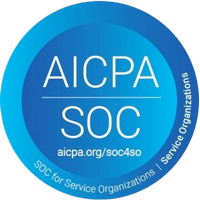Your best potential employee might have been turned away from nursing school this year. In fact, U.S. nursing schools turned away over 78,000 qualified applicants from baccalaureate and graduate nursing programs in the 2022-2023 school year.
These candidates are ready to learn, have the proper qualifications, and want to join your workforce. And with the candidate shortage, healthcare really needs these applicants. So why can’t they? And what can healthcare employers do to help?
Understanding the Nursing Faculty Shortage
Healthcare education is facing a critical shortage of faculty. On top of that, current nursing faculty members are aging, with a substantial proportion of educators in their late 50s and 60s. According to one study, the total number of nursing faculty retirements from 2016-2025 equals one-third of the faculty available in 2015.
Moreover, the percentage of full-time nursing faculty members aged 60 and older rose from 17.9% in 2006 to 30.7% in 2015—and that was eight years ago. Moving forward, this could lead to a retirement wave that would further reduce the available nursing faculty.
This decline has far-reaching consequences, especially when in relation to the ongoing nursing shortage. While there are eager and capable individuals who want to become nurses, there’s also a lack of infrastructure and faculty to support their education and training.
What Healthcare Employers Can Do
There are obviously limits to what an independent employer can do in order to support nursing education. But you can support education within your own organization. Investing in education is vital—both for employers, and for the state of the healthcare industry.
Private employers can make critical strides toward bringing more nurses into the educational pipeline. Here’s how.
Flexibility (and Stipends) for Educators
When you have dedicated nurses who want reenter academia, or even to balance their current jobs with faculty duties at a nearby teaching program, it’s important to give them support.
One effective approach is to institute flexible scheduling practices. These practices enable them to balance their dual responsibilities without compromising the quality of patient care they provide. Shift scheduling software can make the transition into academia smoother and more manageable. Consider incorporating a tool like Apploi Schedule to streamline this process further.
While it may seem counterintuitive to encourage healthcare professionals to step away from their positions to pursue education, the long-term benefits are well worth it. As more nurses join faculty positions, nursing schools will be able to welcome more students—which means that you’ll have more candidates down the line. Supporting your employee’s ambitions will also boost your reputation as a supportive environment.
If you’re feeling particularly motivated to help solve the nursing faculty shortage, consider offering a stipend to nurses who want to go back to school to become teachers. Stipends not only acknowledge the commitment and expertise required for educational roles, but also serve as a powerful retention tool. It offers a compelling reason for healthcare professionals facing burnout to remain within the industry. This ensures a steady supply of experienced individuals who can contribute both as educators and practitioners.
Implement In-House Training
While you might not be able to train your employees to become the next generation of nursing faculty, you can still bolster your workforce’s education with in-house trainings.
Consider offering comprehensive certified nursing assistant (CNA) or home health aide (HHA) training programs. These initiatives not only attract individuals with a passion for healthcare, but also provide a structured pathway for new workers to enter the field. By investing in entry-level training, you can help mold individuals into skilled healthcare professionals while ensuring that they align with your organization’s values and standards.
In-house training programs shouldn’t be limited to newcomers. They can also play a pivotal role in upskilling your existing workforce.
Healthcare is a dynamic field, and healthcare providers must adapt to evolving patient needs and industry standards. Training sessions can cover a wide array of topics, ranging from specialized clinical skills to soft skills like trauma-informed care and bedside manner. By offering ongoing training opportunities, you empower your employees to continuously enhance their knowledge and competencies.
Learn more about in-house training programs.
Remain Competitive
Both the nursing shortage and the nursing faculty shortage are likely to remain major issues for the forseeable future.
In the meantime, hiring competitively can ensure that you’re able to fill your open positions. There are still hundreds of thousands of nurses graduating each year, and they’re all hungry for your open positions. Here’s how you can attract them, instead of losing them to a competitor.
- Partner with local schools. Employers can collaborate with local high schools, colleges, and universities to inform students about entry-level positions in long-term care. This approach raises awareness about immediate job opportunities and future career paths within the industry.
- Host community information sessions. Employers can organize informational sessions about healthcare careers, inviting recent graduates and others seeking new career opportunities. These sessions can feature speakers who discuss specific job roles, share personal experiences, and address industry challenges.
Learn how to hire recent graduates.
Healthcare Employers Must Support Students and Educators
Education is the only solution to the healthcare staffing crisis. Employers can do their part by supporting workers who wish to return to school, calling for more governmental support for nursing programs, and continuing to educate their current workforce. Education is the future, and it’s time to invest.
Better Hiring With Apploi
Apploi Schedule’s flexible scheduling software allows you to handle team transitions and changes without missing a beat. In addition, Apploi’s staffing capabilities allow you to hire competitively within the nursing and nursing faculty shortage. Schedule a demo today.





